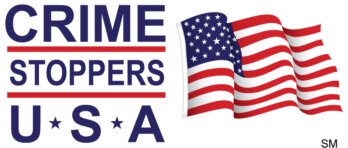FAQ
Q – What are the membership dues for Crime Stoppers USA members?
A - Membership dues are based on the size and population served by the local Crime Stoppers program. The annual dues payment schedule starts at $50 for independent Student programs, and is a maximum of $375 annually for the largest community programs. Associate and Alumni dues are $75.
Q – Is CSUSA a member of CSI?
No. CSUSA is not a member of the global affiliate, Crime Stoppers International (CSI) since Feb. 23, 2024.
Q – What are the requirements of membership in Crime Stoppers USA?
A – To be a program in good standing, the program must be domiciled in the USA or US territory or possession, have a volunteer board of directors, and be registered in its state as a nonprofit organization. The program must be a 501(c)(3) organization according to a United States IRS determination letter and have an IRS tax identification number or provide documentation and a tax identification number that indicates the organization falls under another IRS designation that deems it to have tax-exempt status, with the ability to accept tax deductible contributions. Since anonymity is the foundation of Crime Stoppers, programs must provide an anonymous means for their residents to report information about crime. Rewards given for tips that lead to an arrest or a successful conclusion of a case must be less than $10,000, as required by Federal Banking Regulations, in order to protect the identity of the tipsters. Member programs must have the support of law enforcement organizations in their coverage area. A member program must pay annual dues to Crime Stoppers USA in order to maintain their membership and to receive all the benefits CSUSA offers.
Q – What will be the annual cycle for membership dues?
A - The membership year will run January to December.
Q – What are the elected positions for Crime Stoppers USA and term limits?
A - The elected positions of Crime Stoppers USA will be Chairman, Vice Chairman, Secretary, Treasurer, At-Large Directors, Regional Directors. Term of office is 2 years. No officer shall be eligible to serve more than 2 consecutive terms in each office except the Secretary and Treasurer, who can serve up to 4 consecutive terms. There is a 10 year limit to being on the CSUSA Board of Directors.
Q – What are the paid CSUSA positions and salary amounts?
A - The bylaws provide for the hiring of an executive director if it is deemed necessary and the contract will list the responsibilities of said person, reporting structure, term of contract and compensation.
Q – How is one nominated for elected office on the Crime Stoppers USA Board of Directors?
A - All civilian candidates must have a present association with and a letter of support from a member program in good standing. All law enforcement/coordinator candidates must have a present association with a member program in good standing, and a letter of support from the supervisor of their law enforcement agency. The letter is then submitted along with a completed application. Each candidate must have attended at least 1 state or regional Crime Stoppers conference, and 1 National with supporting documentation. The nominations committee will conduct the background checks and prepare the ballot to disseminate to all programs in good standing. Elections are held every two years, however, the Board of Directors can fill vacancies on the board in between national elections. Committee appointments are also available.
Q – What are the voting privileges for Crime Stoppers USA member programs in good standing?
A - Each member program in good standing of Crime Stoppers USA will have two votes to be cast at a the Annual General Meeting or by mail or electronic means prior to the meeting for all issues and elections to be voted. Each ballot will be sent with return instructions.
Q – What are the paid Crime Stoppers USA positions and salary amounts?
A - At present, the only long-term paid position for the organization is the contracted position for the Director of Legal Services.
